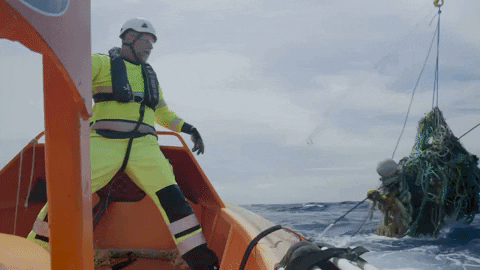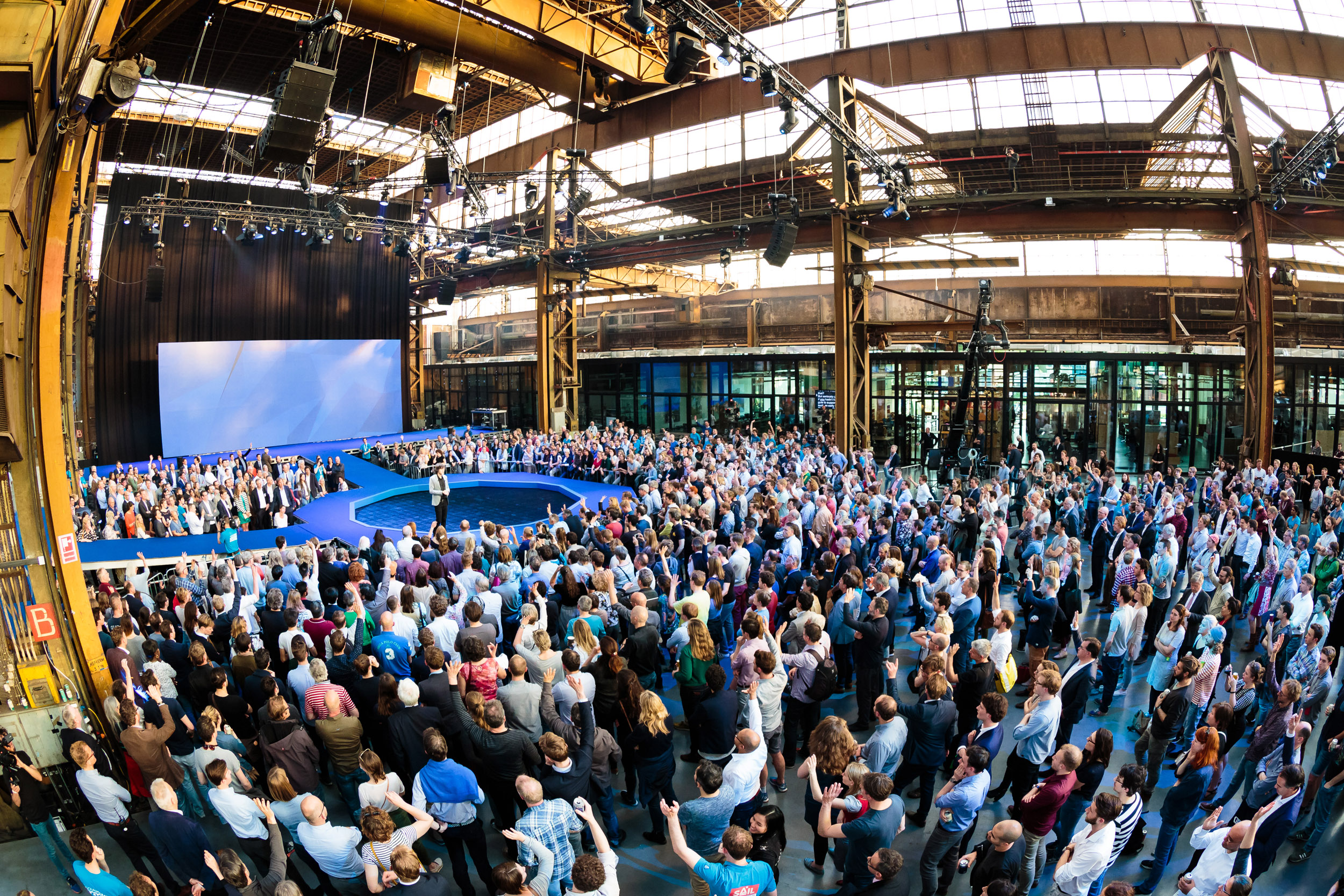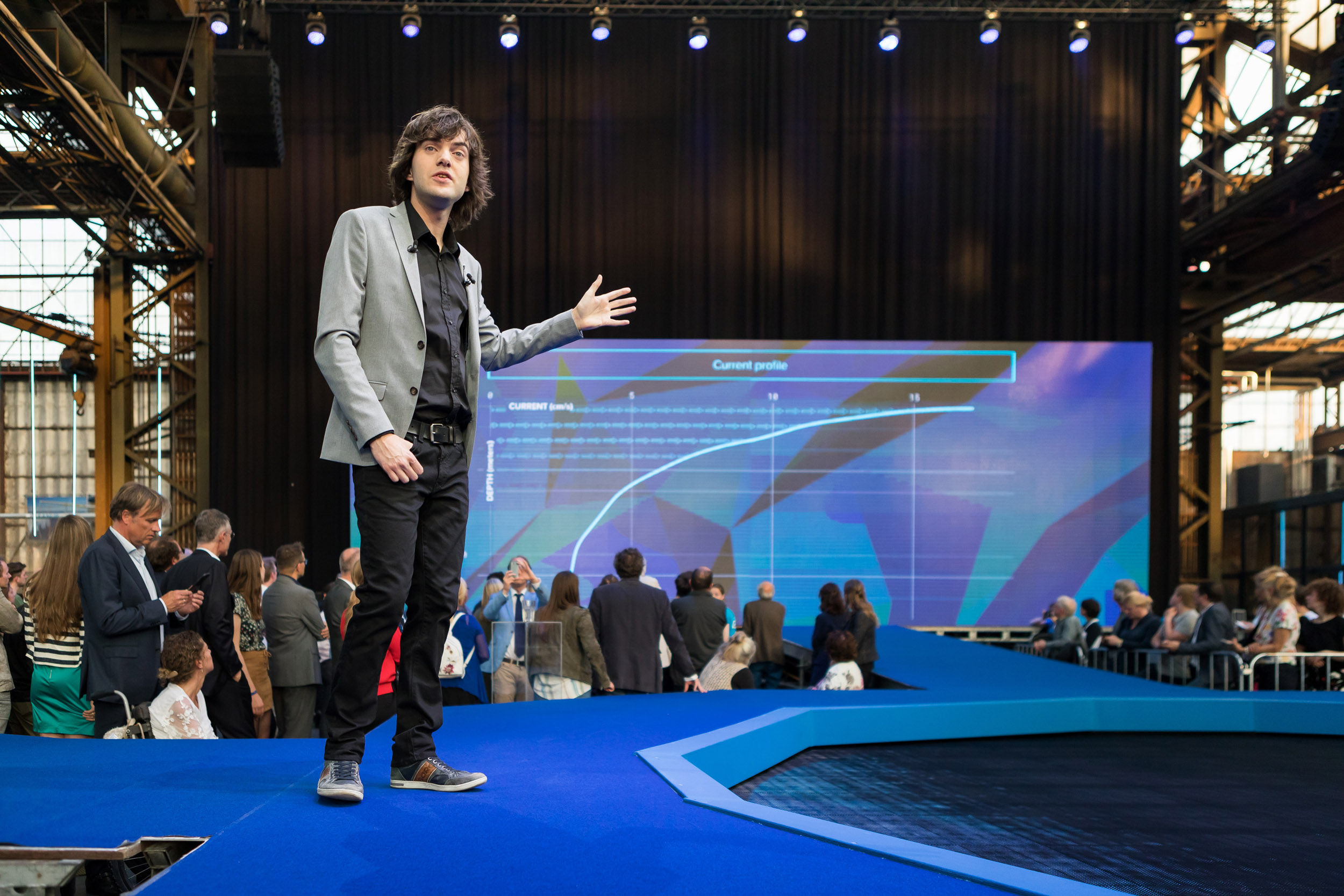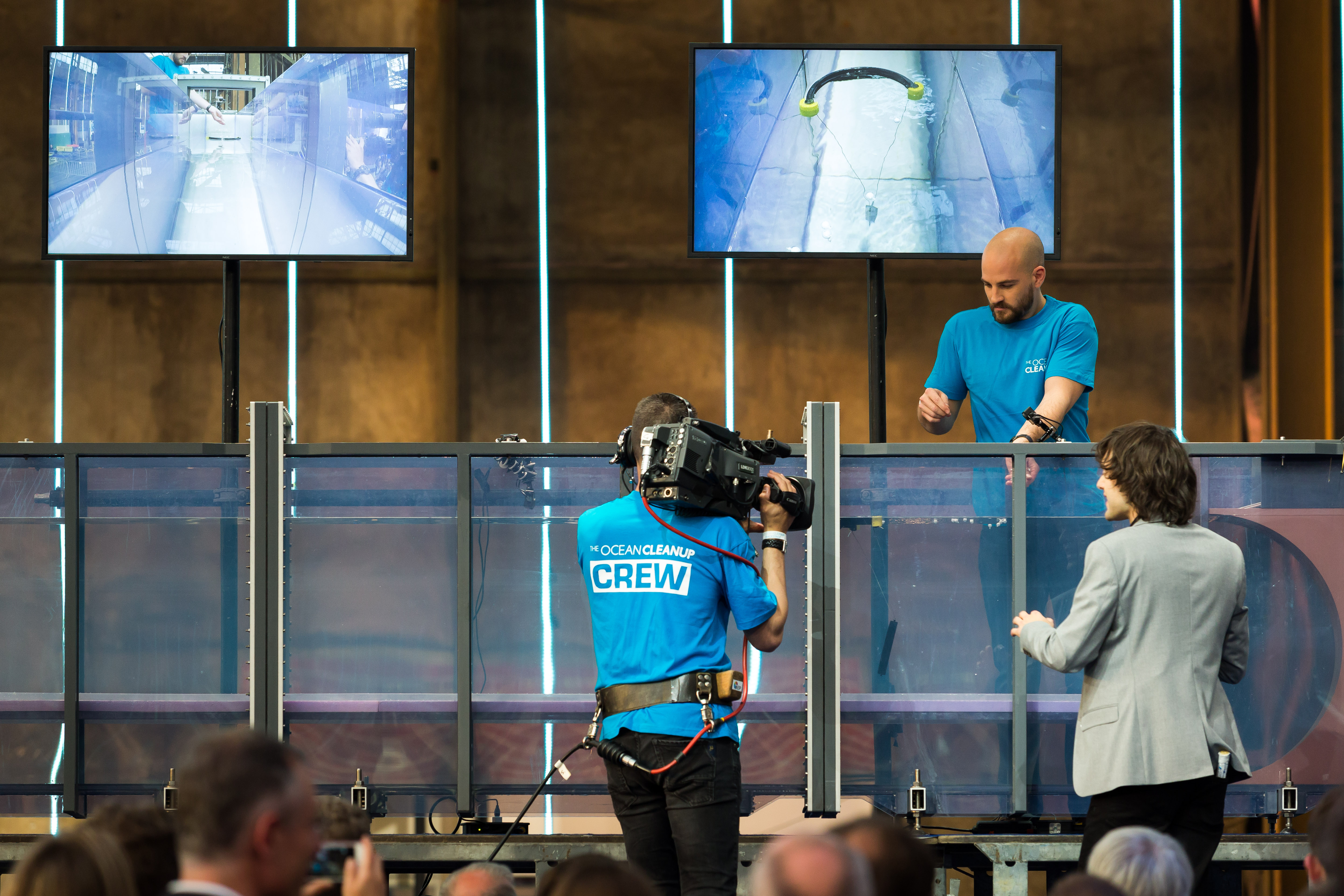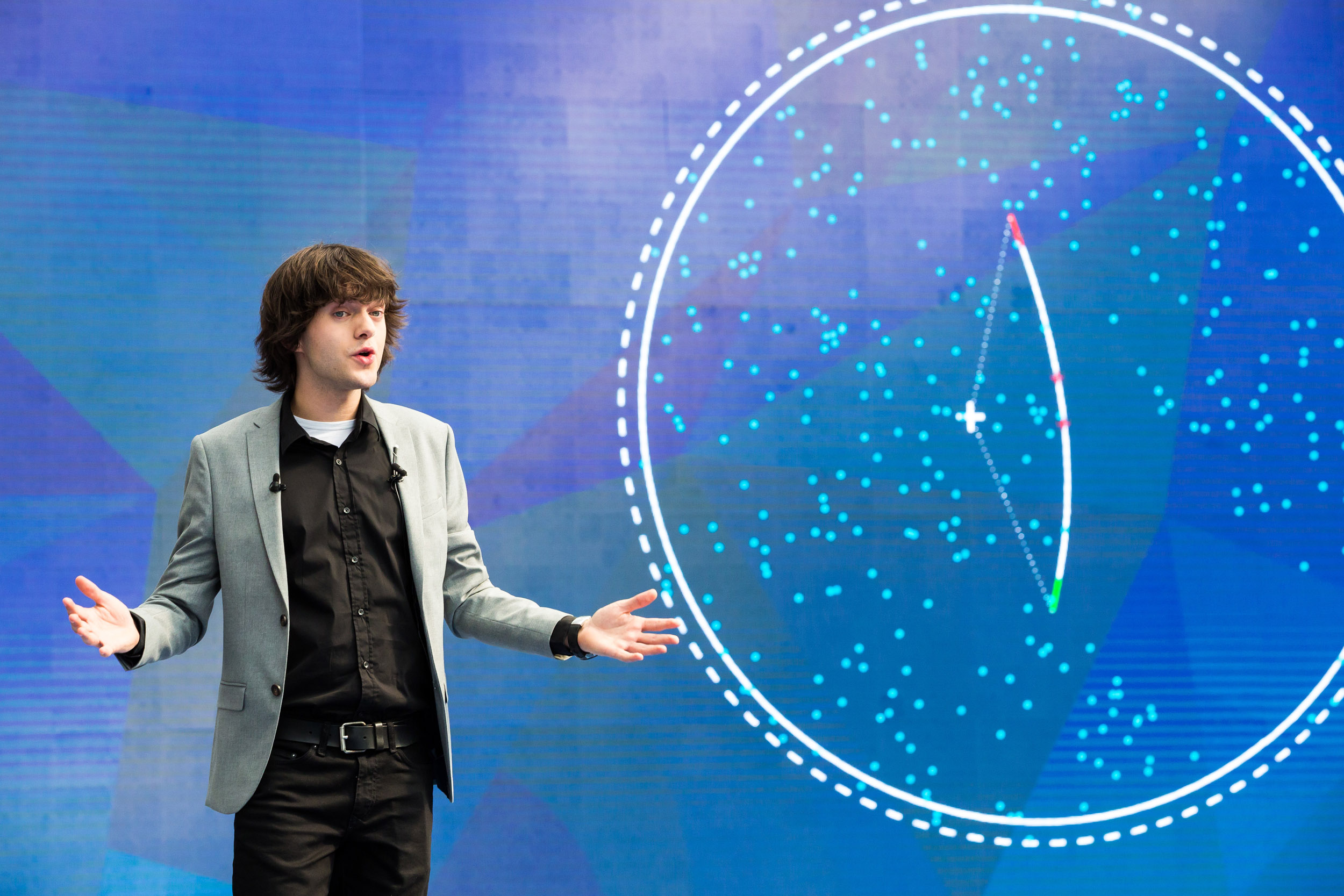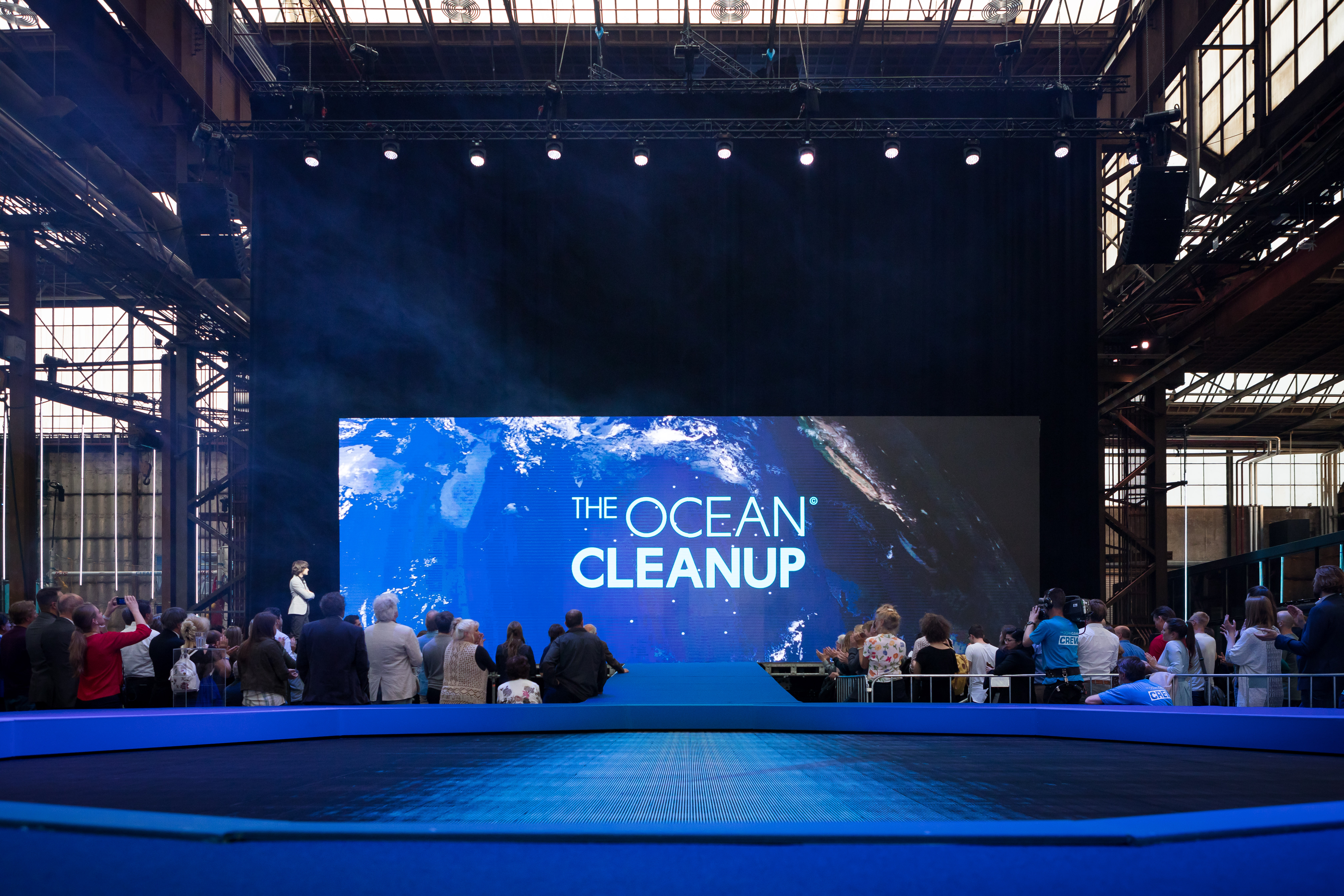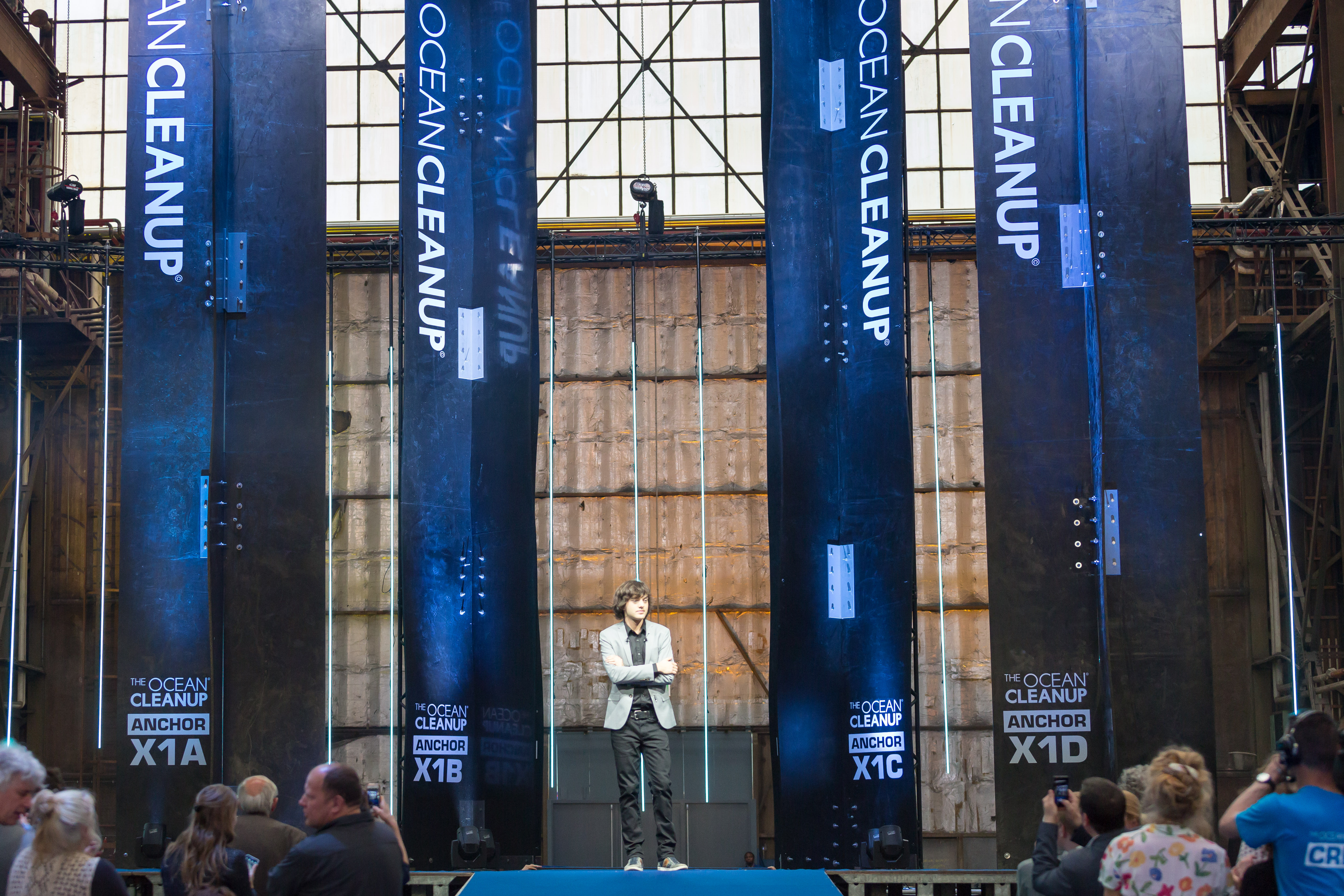
How to better clean the oceans – in 10 pictures
Back to updatesIf you missed our announcement on May 11th, here is a photo album summarizing the 10 key moments of Boyan’s presentation.
Shortly put, we announced the introduction of a mobile drifting system. This modular technology enables The Ocean Cleanup to accelerate production, deployment, and extraction of plastic from the ocean. With the first deployment in the Great Pacific Garbage Patch in the first half of 2018, The Ocean Cleanup will start its mission two years ahead of schedule.
1. LET’S GO BACK TO WHY IT IS SO IMPORTANT TO CLEAN THE OCEAN.
Plastic is accumulating. It’s persistent. We’ve been able to date back plastic samples up to 40 years old.
2. WE MUST DEFUSE THIS TICKING TIME BOMB.
Not only does plastic accumulate, but it also gets more harmful over time. As the decades pass, larger debris crumbles down into microplastics that enter the food chain. This is the stomach content of a single sea turtle found last year.
3. OUR ORIGINS
Boyan took a minute to look back at the origins of The Ocean Cleanup and addressed a sincere thank you to all the crowd funders who supported us throughout the years.
4. WAIT A MINUTE…
Iterative engineering is our core principle. Design, test, repeat… until it works. During this process, we faced hurdles. Anchoring the system to the seabed proved to be the biggest of them all, until we found our way around it. While investigating the ocean currents, we realized we only needed to go a few hundred meters deep to effectively slow down the system. So what if instead of fixing the system to the seabed, we fix it in a deeper water layer?
5. WHO WANTS TO SEE HOW IT WORKS?
Assisted by one of our best scientists, Boyan demonstrated the principle of the drifting system with a scale model experiment.
6. INCREASED SURVIVABILITY
The relationship between the speed of the current and the forces on the system is quadratic, slowing down the system by 1/5th of the speed allows static loads to drop down to 1/25th. Now, we’re confident our systems will be able to survive anything the ocean can throw at them.
7. SO NOW THE SYSTEMS DRIFT, BUT WHERE DO THEY DRIFT TOWARD?
The forces moving the plastic around are the same forces moving the cleanup systems. In other words, where the plastic goes, the cleanup systems automatically go as well, like plastic magnets. The concept is more feasible, and also more efficient at capturing plastic.
8. SCALABLE
Another key advantage of these smaller drifting systems: the financial viability of the whole operation is dramatically improved. We can now scale up, system by system.
Our models show the new concept cuts the cleanup time in half. This is a future to look forward to.
10. 2018 IS THE NEW 2020
Boyan ended the presentation announcing the cleanup was now only 12 months away, two years ahead of schedule.
11. ONE MORE THING…
Watch the full presentation again:

